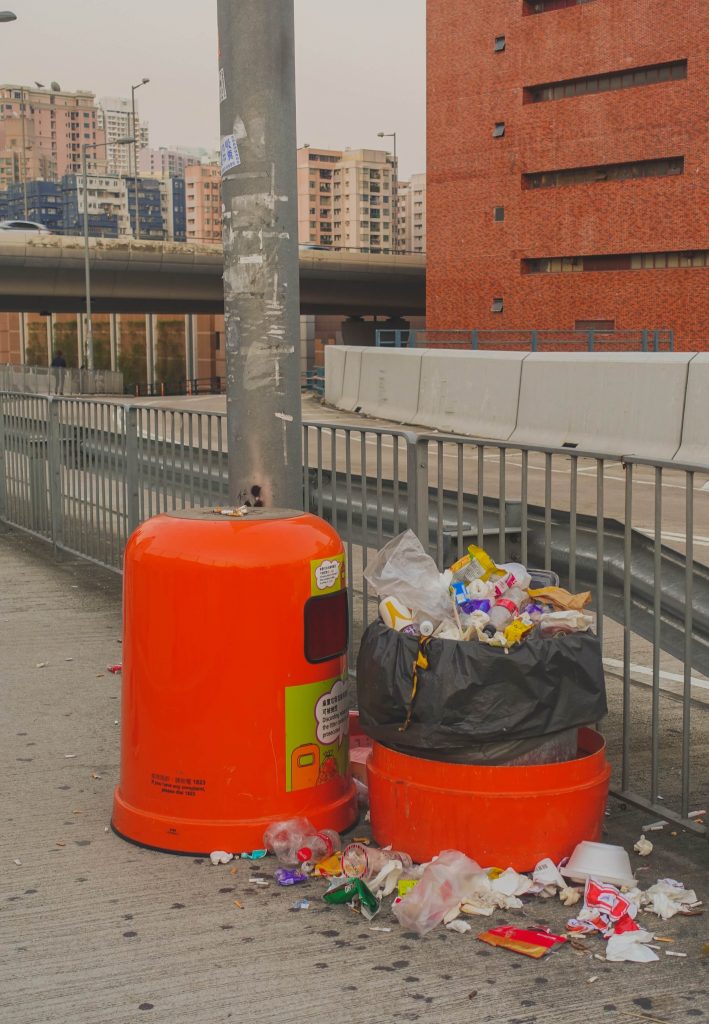Waste & material traceability solution for sustainable facilities

Following the SARS-CoV-1 (Severe Acute Respiratory Syndrome) outbreak in 2002 and the MERS-CoV (Middle East Respiratory Syndrome) which was detected in Saudi Arabia in 2012, SARS-CoV-2 (Covid-19) is the third coronavirus to rearise in this century. The Declaration of a pandemic due to Covid-19 resulted in a global lockdown and significantly changed our lives. The pandemic created a health mobilization throughout the world. The most challenged group of people has been medical workers for obvious reasons. But the pandemic also affected the waste management industry, primarily municipal solid waste (MSW) management and hazardous biomedical waste management.
Researches show that in large and medium-sized cities in China (where the Covid-19 spread from), the amount of MSW has decreased by 30% during the pandemic. On the other hand, the amount of infectious and non-infectious medical waste has increased dramatically by 370% in Hubei Province. These numbers led the World Health Organization (WHO) to formulate new guidelines for medical waste management. Since the non-infectious waste is 80% of the total amount of medical waste generated, the new guideline recommends it to be disposed of as municipal waste.
Current practices of municipal solid waste management need to be altered for coronavirus conditions. The waste generated by an infectious house and non-infectious house should be collected separately. This separation is essential for decreasing the coronavirus spread. Researches show that the residential waste volume increased by 20-30%. This increase highlights the importance of proper waste management practices.

Increased number of waste generation and potential health risks of coronavirus pose challenges for waste management. One of the critical concerns here is the resistance of the virus. Researches show that coronavirus could live on metal surfaces for five days, wood for four days, plastics for three days, and glass for five days. These materials are commonly collected and disposed of in solid waste management. Also, population density is another factor. In the regions where population density is at high levels, there is a higher risk of spreading coronavirus from infectious waste through waste workers to the whole area.
In the new normal lifestyle, when Covid-19 is in existence, municipal solid waste management practices should be conducted precisely. Household waste with Covid-19 infection should not be mixed with other waste, and the 72 hours rule should be followed. Infectious waste is not to be segregated and should wait 72 hours before the collection. Then the waste is to be burned at incinerator facilities. The ash generated by the incinerator is buried in landfills. Since the trash should be rested 72 hours, there will be plenty of waste in containers waiting to be collected after the time limit passes.
Municipalities and private entities are now to be challenged by the piles of waste. They should adopt smart waste management methods to satisfy the needs and ensure operational excellence in these challenging conditions. Tracking the fill rate of a smart container / bin and receiving citizen needs can help companies ensure the processes are managed flawlessly. Smart bin technology also gives managers control to track instant locations, fill rate, and temperature to prevent unwanted events. Citizen management ends problematic citizen-local authority communication for once and for all. It allows authorities to manage all requests from a centralized platform.
Evreka provides customized solutions to increase efficiency, ensure operational excellence, and decrease costs. We help municipalities and private entities to become greener businesses!
Enhance your business with Evreka’s comprehensive solutions. Our experienced crew is ready to answer all your questions!